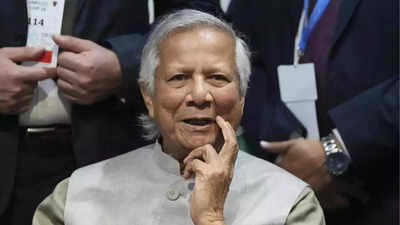DHAKA: The next national elections in Bangladesh are likely to be held between the end of 2025 and the first half of 2026, the interim govt’s chief adviser Muhammad Yunus announced on Monday, addressing growing expectations for a poll roadmap.
In a televised speech to the nation on Vijay Diwas, which commemorates Pakistan military’s surrender to Indian forces that led to the liberation of Bangladesh in 1971, Yunus emphasised the importance of completing major reforms before holding the polls. “I have repeatedly urged all stakeholders to prioritise reforms before the elections,” he said.
“However, if – with political consensus – we can proceed with a flawless voter list and minor reforms, elections could take place by the end of 2025. If we incorporate significant electoral reforms and implement the recommendations of the Election Reforms Commission with national consensus, it might require at least an additional six months,” said Yunus, who heads the caretaker govt installed after the ouster of Hasina. “Broadly speaking, the elections can be scheduled between the end of 2025 and the first half of 2026,” he added. The elections have been pending since the ouster of the Sheikh Hasina-led Awami League govt on Aug 5 following a student-led uprising.
Yunus’ press secretary Shafiqul Alam said his “job will be over by June 30, 2026”, giving a subtle indication of the term of the Yunus govt.
Yunus highlighted the pivotal role of the newly-formed Election Commission. “From now on, the responsibility for initiating the process of forming the future govt rests with the EC,” he said, noting that the poll body has already begun preparations. He also highlighted the importance of removing fake voters from the list and ensuring a smooth experience for young first-time voters, especially in light of the recent student uprising. “For many young people, this election will mark their first opportunity to vote, making it a memorable event,” he said.
Yunus appealed to public to be patient to allow for reforms. “Implementing the
Election Reform Commission
‘s recommendations and improving the electoral process will require time. The EC must be given the necessary resources and time to deliver credible reforms.”
